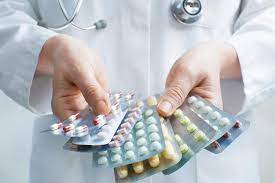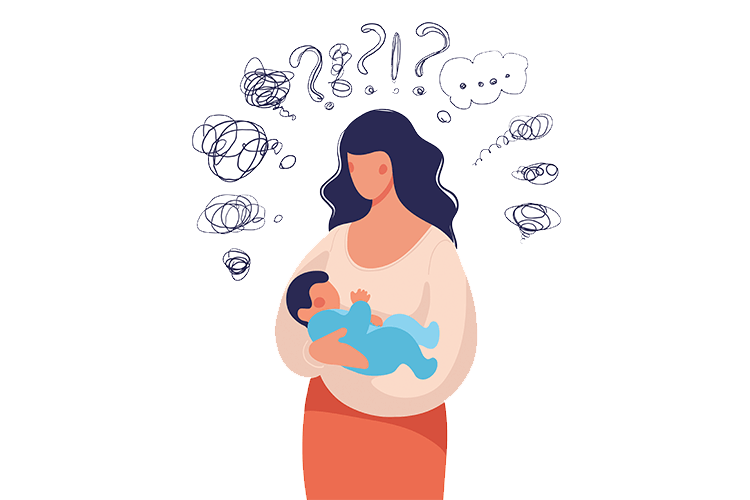Postpartum psychosis is a serious mental health condition that can occur in women who have recently given birth. It is a rare condition, but it can be very dangerous. Symptoms of postpartum psychosis include hallucinations, delusions, and mania. In extreme cases, it can lead to suicidal thoughts or actions. If you are experiencing any of these symptoms after giving birth, it is important to get help right away.
Contents
What Is Postpartum Psychosis?
 Postpartum psychosis is a serious mental health condition that can occur after childbirth. It is characterized by a loss of touch with reality, hallucinations, and delusions. Postpartum psychosis can be extremely frightening for both the woman experiencing it and her family members.
Postpartum psychosis is a serious mental health condition that can occur after childbirth. It is characterized by a loss of touch with reality, hallucinations, and delusions. Postpartum psychosis can be extremely frightening for both the woman experiencing it and her family members.
This condition is relatively rare, occurring in only about 0.01% of births. However, it is a very serious condition that can lead to self-harm or harm to others. Postpartum psychosis requires immediate medical attention and treatment. Because of the potential for harm, it is important for women who are pregnant or who have recently given birth to be aware of the signs and symptoms of postpartum psychosis.
Moreover, postpartum psychosis is often accompanied by severe sleep deprivation, which can worsen the condition. It is important to get help if you are experiencing any of the signs and symptoms of postpartum psychosis.
This can be more difficult to manage if left untreated. So you should see your GP or mental health specialist as soon as possible if you think you may be developing postpartum psychosis.
What Are The Symptoms?
The symptoms of postpartum psychosis can seem similar to those of other mental health conditions, making it difficult to diagnose. However, some key differences set this condition apart.
The most common symptoms of postpartum psychosis include:
Delusions
False beliefs that the mother has about her baby or herself. These can be paranoid, such as thinking that someone is trying to harm the baby, or grandiose, such as believing that the mother has superpowers. It is not uncommon for mothers with postpartum psychosis to have delusions of reference, which is when they believe that innocuous things are actually messages meant specifically for them.
Hallucinations
Seeing or hearing things that are not really there. Visual hallucinations are more common than auditory ones, but both can occur. Mothers with postpartum psychosis may see the baby as a devilish creature or hear voices telling them to harm the baby. However, some hallucinations might be pleasant, such as seeing the baby as an angel.
Mania
This is also called a “mixed state” because it is a combination of both manic and depressive symptoms. A mother in a mixed state may be extremely elated one minute and then crying the next. She may also have difficulty sleeping and eating, and she may experience racing thoughts. These mania episodes make it hard for the mother to take care of herself, let alone a baby.
Sleep disturbances
Many mothers with postpartum psychosis have difficulty sleeping, which can worsen the other symptoms. This can even lead to sleep deprivation, which is a form of torture. For example, a mother may be up all night long caring for her baby, but she is also hallucinating or having delusions, which makes it hard to rest.
Anxiety and agitation
 This seems very common for women with postpartum psychosis. Many women feel this anxiety and are very agitated during the birth of their children. It’s hard to explain, but it feels like your mind is racing and you can’t focus on anything. You may also feel like you’re in danger or that something bad is going to happen. These feelings can be very scary and make it hard to function.
This seems very common for women with postpartum psychosis. Many women feel this anxiety and are very agitated during the birth of their children. It’s hard to explain, but it feels like your mind is racing and you can’t focus on anything. You may also feel like you’re in danger or that something bad is going to happen. These feelings can be very scary and make it hard to function.
So overall, these are some of the symptoms of postpartum psychosis. It’s important to remember that this is a very serious mental health condition that can be life-threatening. If you are experiencing any of these symptoms, please seek help from a mental health professional immediately.
What Causes Postpartum Psychosis?
The causes of postpartum psychosis are not fully understood. However, there are some possible triggers that might contribute to the development of this condition, including:
Family history of mental illness
When a close family member has suffered from a mental illness, you may be more likely to experience postpartum psychosis. The reason for this is not fully understood, but it may be due to genetic factors. For example, the genes that control your mood may be more likely to become imbalanced during pregnancy.
History of bipolar disorder
If you have previously been diagnosed with bipolar disorder, you have a higher risk of developing postpartum psychosis. This is thought to be because the hormones that are released during pregnancy can trigger a manic episode. Bipolar is a mental illness that causes you to experience extreme mood swings, from periods of elation (mania) to depression.
Hormonal changes
The dramatic hormonal changes that occur during pregnancy and after childbirth can lead to mood swings and irritability. The hormones that are most likely to cause problems are progesterone and estrogen. Progesterone levels increase during pregnancy and reach their highest levels just before delivery. Estrogen levels also increase during pregnancy, but they decline sharply after childbirth. These hormonal changes can trigger symptoms of postpartum psychosis.
Previous psychotic psychosis
 In some women, a previous psychotic psychosis can also trigger postpartum psychosis. A previous psychotic episode is defined as a break from reality that includes delusions and hallucinations. Some women with bipolar disorder or schizophrenia may be at higher risk for postpartum psychosis.
In some women, a previous psychotic psychosis can also trigger postpartum psychosis. A previous psychotic episode is defined as a break from reality that includes delusions and hallucinations. Some women with bipolar disorder or schizophrenia may be at higher risk for postpartum psychosis.
So these are some common causes of this condition. It is important to understand that postpartum psychosis is a serious mental health condition that requires immediate treatment. If you or someone you know is experiencing any of the symptoms mentioned above, please seek professional help right away.
How Does It Change Your Life?
It is estimated that one in every one thousand women who give birth will experience postpartum psychosis (PPD). This condition can develop quickly, sometimes within the first two weeks post-delivery, and can be both mentally and physically exhausting. There are several consequences of PPD that can change a woman’s life, some of them include:
- A woman may feel like she is in a constant state of worry, feeling on edge all the time.
- She may have unexplained outbursts of anger.
- She may be unable to eat or sleep, and as a result, can become extremely tired.
- Paranoia and delusions are also common, and a woman may believe that her baby is in danger or that she is being watched.
- It impacts baby and mother bonding and can make it difficult to care for her child.
- PPD can also lead to suicidal thoughts or attempts.
- This is also responsible for the low self-esteem of the mother.
- And, it can harm the overall quality of life.
As you can see, PPD is a serious mental health condition that can have a profound effect on a woman’s life. If you are experiencing any of these symptoms, it is important to seek professional help. PPD is treatable, and with the right support, you can recover and live a happy, healthy life.
You should never feel ashamed or embarrassed to seek help for PPD, and remember that you are not alone. If you are struggling, please reach out for support. There are many resources available to help you through this difficult time.
How To Treat Postpartum Psychosis?
There are a number of ways to treat postpartum psychosis. The most important thing is to get proper medical help right away. Some of the other methods to treat this condition include:
Counseling or therapy
This is one of the most important methods to help a woman recover from postpartum psychosis. Counseling and therapy can help a woman understand her condition, work through her emotions, and develop coping mechanisms. It aims at helping the woman get her life back on track. There are various types of therapy, such as cognitive behavioral therapy, that can be helpful in treating postpartum psychosis.
Support groups
Another important method of treatment is to join a support group. This can help the woman feel connected to other women who are going through similar experiences. It can also provide a forum to share information and experiences, which can be helpful in recovery. Some support groups are run by mental health professionals, while others are run by women who have recovered from postpartum psychosis.
Medication
 In some cases, medication may be necessary to manage symptoms of postpartum psychosis. Medication can help to stabilize mood and reduce the risk of future episodes. If you are considering medication, it is important to discuss the risks and benefits with your doctor. Because the medications are numerous and the decision is complex, we recommend that you seek consultation with a psychiatrist specializing in pregnancy and postpartum mental health.
In some cases, medication may be necessary to manage symptoms of postpartum psychosis. Medication can help to stabilize mood and reduce the risk of future episodes. If you are considering medication, it is important to discuss the risks and benefits with your doctor. Because the medications are numerous and the decision is complex, we recommend that you seek consultation with a psychiatrist specializing in pregnancy and postpartum mental health.
If you or someone you know is experiencing postpartum psychosis, it is important to get help right away. This condition can be very serious, but with proper treatment, most women make a full recovery. If you have any concerns, please don’t hesitate to reach out to your healthcare provider.
Can Postpartum Psychosis Be Prevented?
Yes, there are things that can be done to help prevent postpartum psychosis. Because this condition is not something that can be predicted, it is important for all women to be aware of the signs and symptoms. If you are experiencing any changes in your mental health after giving birth, it is important to seek help right away.
There are also things that can be done during pregnancy to help reduce the risk of postpartum psychosis. These include:
Getting regular prenatal care
This is important for all pregnant women, but it is especially important for those who have a history of mental health problems. When you see your healthcare provider regularly, they can keep an eye on your mental health and make sure that you are getting the help you need. Also, if you start to experience any changes in your mental health during pregnancy, your healthcare provider can help you get the treatment you need right away.
Eating a healthy diet
A healthy diet is important for maintaining good mental health. Eating nutritious foods helps the brain to function properly and can positively affect a person’s mood. Some specific nutrients that are important for mental health include omega-three fatty acids, vitamin B12, and folate. It is also important to limit sugar and refined carbohydrates, as they can contribute to mood swings and other mental health problems.
Exercising regularly
This is a great way to get endorphins flowing and improve your mood. It can be tough to find the motivation, but even a short walk can make a big difference. Also, this is a great way to get in some much-needed “me” time. Exercise will distract your mind to focus on something else other than your current situation and hopefully give you some relief.
Getting enough sleep
Sleep is an essential part of postpartum recovery. A new mother needs to be well-rested in order to heal physically and emotionally. Postpartum psychosis can make it difficult to get enough sleep. If you are struggling to get enough sleep, talk to your doctor about ways to improve your sleep hygiene. Also, you must take out some time for yourself. Taking care of yourself will help you feel better and be able to better take care of your baby. Moreover, it can be difficult to feel like yourself after having a baby.
Talking to your family
 Family can be your biggest support system during this difficult time. Talk to them about what you’re going through and how they can help you. If you have a partner, involve them in your treatment plan. It’s important to have a strong support system to help you through this tough time. They can help you with things like childcare, housework, and cooking.
Family can be your biggest support system during this difficult time. Talk to them about what you’re going through and how they can help you. If you have a partner, involve them in your treatment plan. It’s important to have a strong support system to help you through this tough time. They can help you with things like childcare, housework, and cooking.
If you don’t have family or friends nearby, there are still people who can help you. There are many support groups for women with postpartum psychosis. These groups can provide you with emotional support and practical advice. You can also find online support groups.
So overall, these are some things to keep in mind if you or a loved one is experiencing postpartum psychosis. It is a serious mental health condition, but with treatment, it is possible to recover and live a healthy life. If you have any questions or concerns, please don’t hesitate to reach out to a mental health professional.
Conclusion
To conclude, postpartum psychosis is simply a mental health condition that can develop after childbirth. It is important to be aware of the symptoms and seek help if you are experiencing them. If you or someone you know is struggling with postpartum psychosis, please reach out to a mental health professional for help.
You should never feel ashamed or embarrassed to seek help for postpartum psychosis or any other mental health condition. Remember, you are not alone and there is always help available.
If you want to know more about postpartum psychosis or other mental health conditions, please visit the Therapy Mantra website. Here the team of experts can provide you with more information and resources. You can also book an online therapy session or download our free Android or iOS app.


